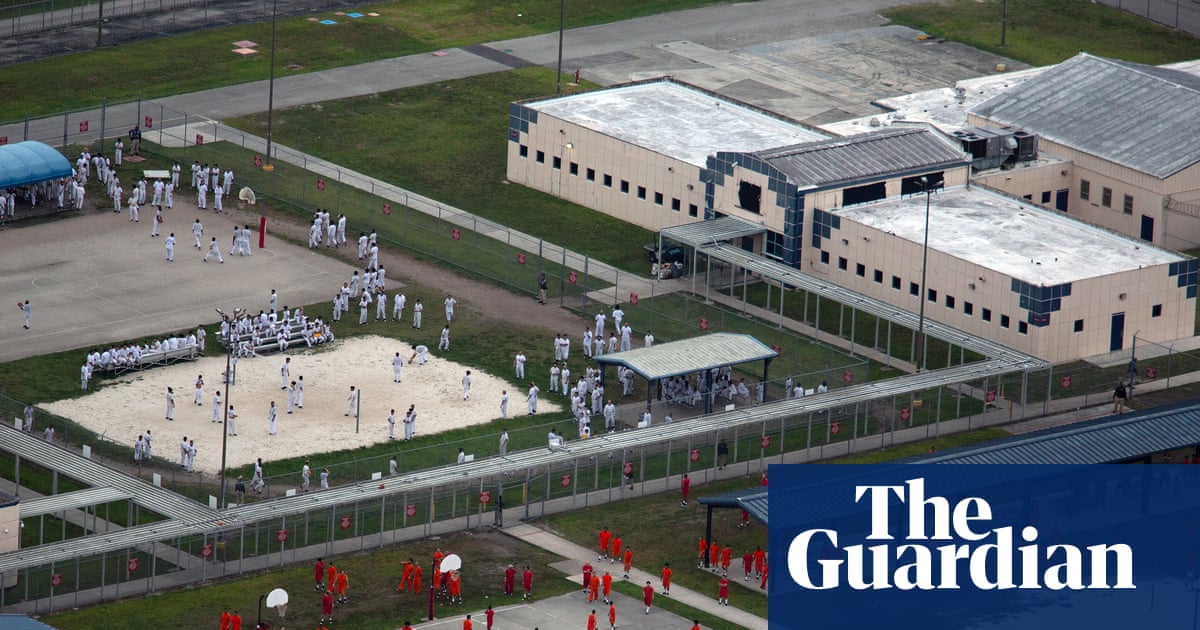Inhumane Conditions in Miami Immigration Detention Centers: A Closer Look
Recent reports from advocacy groups have shed light on the troubling conditions within immigration detention centers in Miami, where migrants are enduring inhumane treatment. The findings highlight a series of alarming practices that have raised concerns among human rights organizations and the public at large.
Shackled and Dehumanized
One of the most shocking allegations comes from detainees at the downtown federal detention center, where migrants reported being shackled with their hands tied behind their backs while kneeling to eat. Pedro, one detainee, recounted that they had to eat "like animals" from styrofoam plates. Such treatment raises questions about the dignity and humanity afforded to individuals held in these facilities.
Overcrowded Facilities
The situation is exacerbated by overcrowding. Reports indicate that dozens of men have been crammed into holding cells for extended hours, often going without food until the evening. For instance, some detainees recounted being denied lunch until around 7 PM, with the food placed before them while they remained shackled to chairs. This deliberate neglect of basic needs paints a horrifying picture of their daily existence.
Invasive and Degrading Practices
At the Krome North service processing center, female detainees suffer from a lack of privacy, being forced to use toilets in full view of men. Furthermore, they are routinely denied gender-appropriate care, showers, and adequate nourishment. The overcrowding extends to the transportation of detainees, with some individuals reportedly spending over 24 hours confined to a bus with a single, quickly clogged toilet. As one man described, the conditions on the bus became unbearable, creating a stench that permeated the air.
“La Hielera” – The Ice Box
Upon finally arriving at the facility, many detainees endure even more hardship in what they refer to as "la hielera," or the ice box. This frigid intake room offers no bedding or warm clothing, compelling detainees to sleep on cold, hard concrete floors for up to 12 days. Given the lack of space, every available room is utilized for the influx of new arrivals, often relegating individuals to visitation rooms that overflow with detainees.
Neglected Healthcare
The lack of adequate medical attention is another pressing issue. In the Broward Transitional Center, where tragic incidents have occurred, including the death of 44-year-old Marie Ange Blaise, detainees report being routinely denied necessary medical and psychological care. Some individuals suffer postponements for treatment of chronic conditions or injuries and face dismissive attitudes from staff.
Culture of Violence
Worryingly, the reports indicate a pattern of aggression from staff in these facilities. In one incident, staff members at the downtown Miami jail turned off a surveillance camera and brutally subdued detainees who were protesting the lack of medical attention for a fellow inmate. The violence resulted in injuries, including a broken finger for one detainee, illustrating a concerning culture of punishment instead of care.
Systemic Overcrowding
These alarming conditions are not isolated incidents but part of a broader issue of overcrowding across federal immigration facilities. The average daily number of detainees across the nation reached 56,400 in mid-June, with a staggering 72% lacking any criminal history. This systemic issue prompted the state to initiate plans for a new facility, ironically dubbed the “Alligator Alcatraz,” intended to hold up to 5,000 undocumented migrants awaiting deportation.
Historical Context of Escalation
The abuse allegations coincide with a troubling trend during the Trump administration, characterized by an aggressive stance on immigration and an increase in detentions and deportations. As human rights advocates point out, these practices are causing significant harm to communities and families, exacerbating the humanitarian crisis in Florida and beyond.
These harrowing conditions reveal the urgent need for reform and accountability in immigration detention practices, as the human rights of those held within these facilities continue to be compromised. The situation in Miami serves as a stark reminder of the challenges faced by migrants and the urgent calls for justice from organizations committed to fighting for their dignity and well-being.


